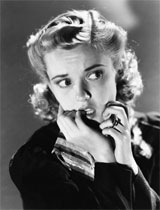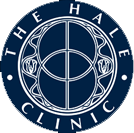Find out how I can help:
07958 969106
When her nail-biting habit started turning into a bloodsport, Francesca White knew she needed professional help. Here's how she got her cuticles back...
There are some things you must NEVER do in public. By 'public', I mean social functions or meetings, at your desk, in bars, waiting rooms, any form of transport where spontaneous relocation is tricky or - God forbid - at the table. And by 'things', I mean disgusting attempts at personal grooming. Like nail biting. Which is what, until recently, I had been doing for most of my life.
My habit, which involved my hands spending an alarming amount of time in my mouth, wasn't as bad as some people's - like the girl I once saw sucking her split ends on a crowded train before  flicking her hair back into the faces of fellow passengers. Or the woman filing her nails in Cecconi's, plumes of dust flying silently through the air. Or the man I spied absentmindedly picking his toenails during a Bikram class. I felt reassured to know that my vice was nowhere near as repugnant.
flicking her hair back into the faces of fellow passengers. Or the woman filing her nails in Cecconi's, plumes of dust flying silently through the air. Or the man I spied absentmindedly picking his toenails during a Bikram class. I felt reassured to know that my vice was nowhere near as repugnant.
To be fair, I wasn't a nail biter in the traditional sense - but I couldn't stop nibbling at my fingers. I'd bite and gnaw, then chew some more, searching out rough calluses and ragged cuticles - sometimes consciously, sometimes not - in pursuit of perfection, of smooth skin and neat nail beds. It was a vicious cycle and I'd wake up in the middle of the night with my fingertips throbbing. Sometimes I'd bite so much that the skin would rip, like that scene in Black Swan where Natalie Portman pulls at a hangnail so fanatically that blood gushes down her hand. Are you even still reading this? If you're about to turn the page out of sheer queasiness, I don't blame you.
It's not what you'd expect from someone who spends her days writing about grooming. I am supposed to have nice nails. I should be a fount of beauty know-how. I ought to be advising you on all things nail-related. And so my bid to kick the habit began. With a manicure. Which, obviously, hurt like hell. I had assumed that someone scraping my cuticles with metal instruments and swabbing them with acetone would be incentive enough to quit. Not so. I tried lacquering my fingers in the bitter varnish they use on children who suck their thumbs. It tastes revolting - until you've gnawed it off. I wore gloves. It worked wonderfully until I had to type or text. I needed something radical; something that would not only stop me from biting, but also make me understand why I felt the compulsion. Something like hypnotherapy.
Two weeks later, I found myself at the Hale Clinic, a temple of alternative therapies, from the weirdly wonderful to the totally wacky. I wasn't sure what to expect. Would there be a swinging pocket watch, my eyes following obediently as though gazing at a metronome until I had been lulled into a zombified state? My ego fretted that I might dribble or snore. Then I met Anne Lee. Not only had she been practising since I was born, but she reminded me of Joanna Lumley, dressed in black with a pristine blonde chignon. Visions of barefoot therapists wafting incense evaporated - Anne was normal, motherly even, and her dress sense had a soothing effect. I also noted, somewhat optimistically, her immaculate nails.
An hour flew by. Time with Anne felt like a counselling session, endless questions - about my childhood, my relationships and my quirks - interspersed with moments when I just lay on a bed, listening to her affirmations about what I could achieve. She picked up on words that I used in conversation and wove them into her own. She spun images of tightly spiralling staircases in my head and had me imagine (I kid you not) my 'safe place'. (No, I'm not elaborating on that. This piece is embarrassing enough.) The questions were designed to help us realise not only what sparked the habit as a child, but what still triggers it at the age of 26.
In my second session, Anne asked what I thought chewing my fingers said about me. Shy, underconfident, uncomfortable were some of the words I came up with. 'Does it matter what other people think?' she asked. I looked at her like she had sprouted another head. 'Of course,' I replied. I mentally painted a picture of myself for her benefit - mouth hidden behind my hand, teeth working furiously, the world blocked off. 'Was it a form of comfort?' she asked. Perhaps. A bid to maintain control in situations in which I felt vulnerable? Possibly. Then something clicked. This person - timid, awkward, compulsively nibbling - was what the world saw on a daily basis. And it wasn't a good look. I left that session feeling strangely buoyant and determined to quash the impulse.
The next morning, I was dismayed when I found myself doing it again as I walked to work. Annoyed, I tried something Anne had taught me called 'ideomotor response'. Commonly used to treat anxiety, it encourages you to replace an urge with another physical action, for example, tapping. From now on, I was to stroke the area of skin with my thumb instead of biting it. And, slowly but surely, it started to do the trick. I still found my hands hovering near my mouth, but I resisted the temptation to chow down. At first it was a conscious effort but, after a while, I simply didn't want to. It really was that easy.
Six months later and four sessions on, I still haven't bitten. I have brand-new fingers. My time with Anne taught me that she could show me how to stop, but only I could put it into practice. In my efforts to stay on the straight and narrow, my desk drawer has become a squirrel-store of nuts to munch in lieu of my fingers. The manicures have resumed - this time with Valentina Kovács at Goddess. She uses sharp, spindly scissors to trim cuticles in the cleanest, most precise manner - a fiddly process that yields flawless results and thwarts any attempts at picking. Which just goes to show - some habits you need to grow out of, others you need to be forced out of. Remember that the next time you find yourself doing something you ought not to in public.
:: Hypnotherapy with Anne Lee, £90 for 60 minutes, at the Hale Clinic, 7 Park Crescent, W1 (020 7631 0156).
 Member of the Hypnotherapy Association | Copyright © 2023 Ease Your Mind. | All rights reserved. | Designed by Simply Websites
Member of the Hypnotherapy Association | Copyright © 2023 Ease Your Mind. | All rights reserved. | Designed by Simply Websites
 The Hale Clinic. | 7 Park Crescent, London, W1B 1PF
The Hale Clinic. | 7 Park Crescent, London, W1B 1PF